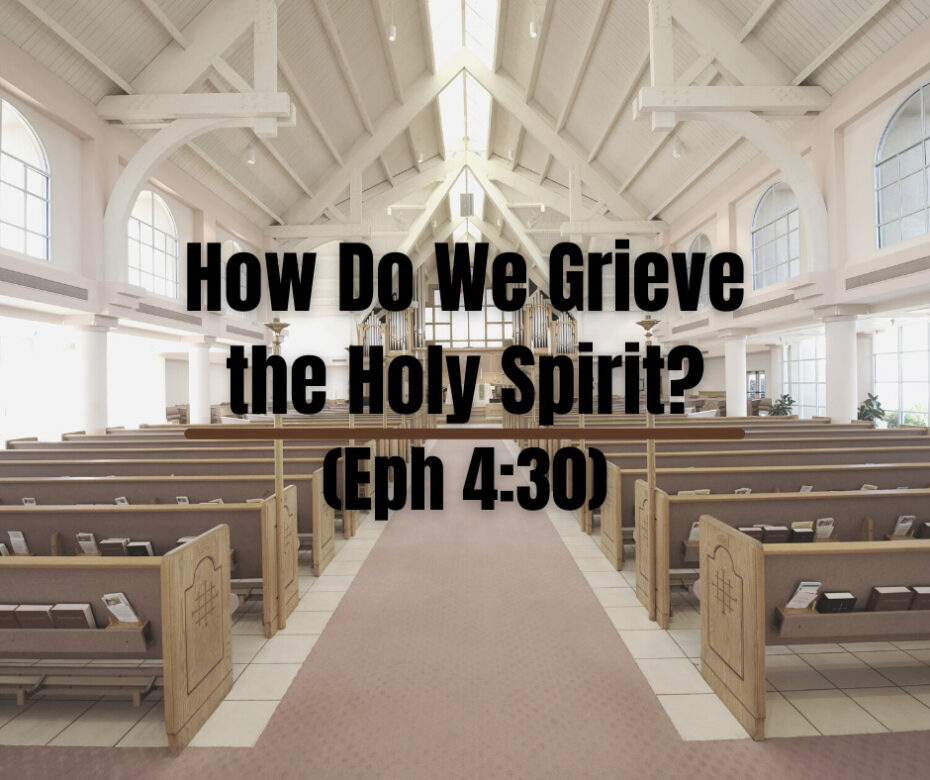We have all been told that as believers we should not grieve the Holy Spirit. I think it is safe to say that what we normally think this means is that if I commit a sexual sin, or some other kind of sin, the Holy Spirit who lives within me is grieved. I have also heard it said that the Holy Spirit is grieved when I don’t pray enough. He wants to have communion with me. After all, as a believer I am a temple of the Holy Spirit. While all of this is no doubt true, I am convinced that this is not what Paul means in Eph 4:30. The usual way of understanding this verse has too much emphasis on the individual.
A couple of years ago, GES had a national conference on the Book of Ephesians. One of the things that came out in that conference is that the Book of Ephesians emphasizes the church. That made me take a closer look at what it means in Ephesians to grieve the Holy Spirit.
The verse in question occurs in a section that runs from 4:25-32. Even a casual reading of these verses indicates Paul is talking about how believers treat one another within the Body of Christ. In the verse immediately before this section, Paul speaks of the “new man” (v 24). This is a reference to the church. The exact same phrase occurs in 2:15, where Paul specifically says the new man is the church.
We should notice how Paul speaks of the fact that we are “neighbors” and “members of one another” (v 25). Believers are to “share” with each other (v 28). We are to speak in a way that builds up others in the body (v 29). Members of the body are to be kind to “one another” and forgive one another. All of these things show the importance of how believers treat each other.
The command not to grieve the Holy Spirit is given right in the middle of these verses. In the previous verse (v 29), Paul tells the believers in Ephesus to speak to each other in a way that builds others up and is gracious. We are not commanded to be gracious to ourselves! We are to be gracious towards others. Within the body, our words to each other should not be “corrupt.” The word has the basic meaning of bad or useless. In other words, within the church, we should speak in a way that builds up the body and does not tear it down. The very next sentence is: don’t grieve the Spirit.
It seems to me that in this context Paul is saying that believers grieve the Spirit when they do and say things that are not edifying the believers around them in the church. If we remember that it is the Spirit that has united us to the Body of Christ, this makes sense. If the Spirit has unified us, when we forget that we are united and manifest it by treating other believers badly, the Spirit is grieved. What I am trying to say is that the grieving of the Spirit here is talking about how a church operates. It is talking about a corporate thing. The Spirit is grieved when the body is not functioning in a godly way. A picture of what Paul is discussing is a church that is full of dissension. Such a church breaks the heart of the Holy Spirit.
It is hard for us to think in this manner. We automatically think of our spiritual well-being in a very individualistic way. Paul is saying that it is not all about us as individuals. The church is extremely important to God. It is not just the individual Christian that is the temple of the Holy Spirit (1 Cor 6:19). The church is the temple of the Holy Spirit as well (1 Cor 3:16). He is pleased when He sees healthy churches where the believers grow as a body.


